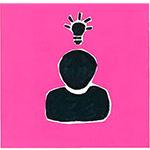
In the Appellate Advocacy Clinic, law student interns litigate appeals in state and federal courts and administrative agencies, handling all facets of the process—from intake through mediation, briefing, and argument.

The Children’s Rights Clinic in conjunction with the Alabama Disabilities Advocacy Program works to ensure that youth with disabilities involved in the juvenile justice system have their disability needs met and their rights protected.

Students provide free legal representation to low-income community members and University of Alabama students charged with criminal offenses, primarily misdemeanors, in Tuscaloosa and nearby counties.

Students provide free legal advice and representation in a wide variety of civil cases to members of the community and to University of Alabama students.

Students provide free and comprehensive legal assistance on civil matters to victims of domestic violence in Tuscaloosa County, Alabama.

The Entrepreneurship & Nonprofit Clinic (E-Clinic) provides pro bono, transactional legal services to small businesses, start-ups and entrepreneurs, nonprofit organizations, social enterprises, community development organizations, and authors, artists, and musicians in both urban and rural counties of Alabama.

Students provide individuals with free mediation services who have cases pending in family courts in Tuscaloosa County, Alabama.
Call (205) 348-4960 or email lawclinics@law.ua.edu
Email: lawclinics@law.ua.edu
Phone: +1 (205) 348-4960
Mailing Address:
Box 870392
The University of Alabama School of Law, Tuscaloosa, AL. 35487-0392
Street Address:
101 Paul Bryant Drive
Tuscaloosa, AL. 35487

The school’s first law clinic opened in 1970; the Clinical Program has now grown to encompass six in-house clinics along with the Veteran’s Law Project. Law clinics help second and third-year students develop the tools they need to serve clients, the profession, and society. All of the law school’s clinics have dual goals: to provide engaging hands-on training to law students and to provide free high-quality legal assistance to members of the community in need. Training in professional skills and values is accomplished by placing the law clinic student, as much as possible, into the role of attorney on the case under the close supervision of experienced law school faculty. As student attorneys, they are given responsibility for client interviewing and counseling, case planning and management, factual investigation, legal research, drafting pleadings, briefs and other legal documents, negotiations, alternative dispute resolution, settlement, and trial and appellate advocacy.
In the process of taking responsibility for actual cases, students move from observers to participants in the legal system and learn to integrate substantive law, procedures, and ethics with the professional skills needed for all aspects of their professional lives. In their clinical experiences, students engage in social justice work, work with diverse client populations, and develop cultural competency. Clinics help students develop the self-confidence and skills to be “practice-ready” upon graduation. The clinical program includes instruction on professional identity, bias, cross-cultural competency, and racism.
The University of Alabama School of Law guarantees every interested law student the opportunity to participate in at least one law clinic before graduating. Students can participate during their 2L and 3L years. Clinical faculty, not outside lawyers, directly supervise and mentor student attorneys as they practice law and represent clients. Many students describe their law clinic experience as one of the most significant components of their legal education.
As the only public law school in Alabama, The University of Alabama School of Law is dedicated to serving the public. Through its law school clinics, it both ensures that the next generation of lawyers are well trained in the skills necessary for the successful practice of law and helps fulfill the bar’s mission to provide competent legal services for all persons. Together, the students in the school’s six law clinics provide approximately 15,000 hours of free legal assistance each year to individuals and organizations in Tuscaloosa and around the state.